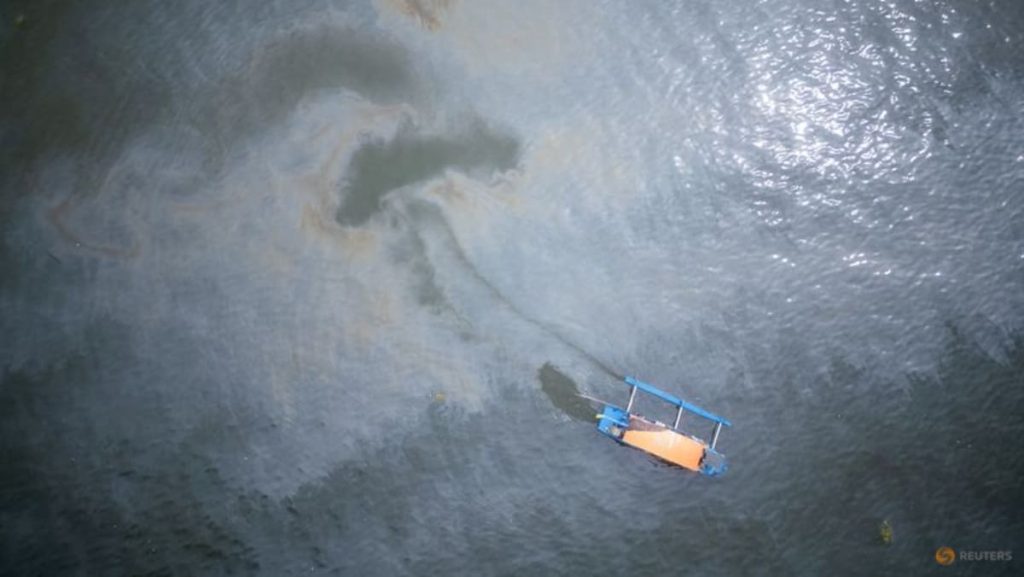An oil spill from a sunken marine tanker in Manila Bay has reached the shores of Tanza, a fishing village in the Philippines, threatening the health and livelihood of local fishermen. The vessel, MT Terra Nova, was carrying 1.5 million litres of industrial fuel when it sank off the coast of Limay in Bataan province. The tragic incident, which resulted in the death of one crew member, has triggered concerns about the impact on the marine ecosystem and the local community.
Fishermen in Tanza, located in Cavite province south of Manila, expressed their distress upon discovering the oil slick on their shores and detecting a strong foul odor. The residents, who heavily rely on fishing for their livelihood, fear that the contaminated sea will affect their catches and force them to sell their products at lower prices due to potential health risks to consumers. They are unsure of where else they can turn for income if their primary source of livelihood is compromised.
The spill poses a significant threat not only to local fishermen but also to the marine environment in the affected area. Efforts to contain and clean up the spilled fuel have begun, with authorities and volunteers working to minimize the damage and prevent further spread of the oil slick. However, the magnitude of the disaster and the long-term consequences on marine life and ecosystems remain unknown, raising concerns about the sustainability of the region’s fisheries and the overall health of the coastal environment.
The tragedy highlights the importance of maritime safety and the need for stricter regulations to prevent similar incidents in the future. Adequate measures must be implemented to ensure the safe transportation of hazardous materials, such as industrial fuel, to minimize the risk of maritime accidents and environmental disasters. Authorities and shipping companies must prioritize the safety of crew members, the protection of marine ecosystems, and the livelihoods of coastal communities that depend on fishing for their sustenance.
As the cleanup efforts continue in Tanza and other affected areas, the fishermen and residents are left to grapple with the immediate consequences of the oil spill on their daily lives and future prospects. The uncertainty surrounding the extent of the damage and the timeline for recovery adds to the anxiety and hardship faced by those directly impacted by the disaster. It is crucial for government agencies, environmental organizations, and other stakeholders to provide support and resources to assist the affected communities in overcoming the challenges posed by this environmental crisis.
In the aftermath of the oil spill in Tanza, the resilience and unity of the local community are put to the test as they work together to address the crisis and rebuild their lives. Despite the devastating impact on their livelihoods and the natural environment, the fishermen and residents of Tanza remain determined to overcome adversity and restore their beloved coastal community. By coming together and supporting one another, they hope to recover from this disaster and create a more sustainable future for themselves and future generations.















